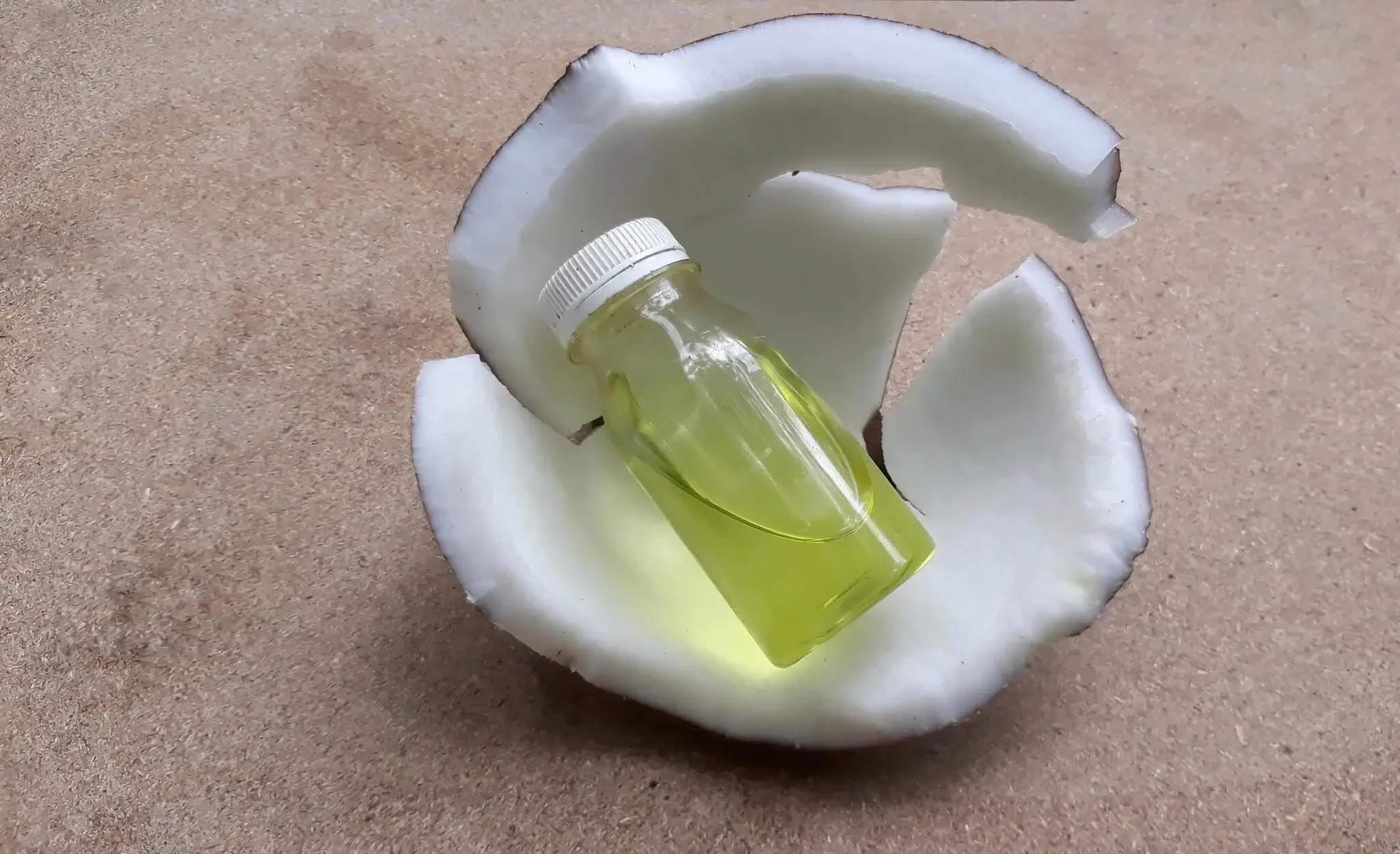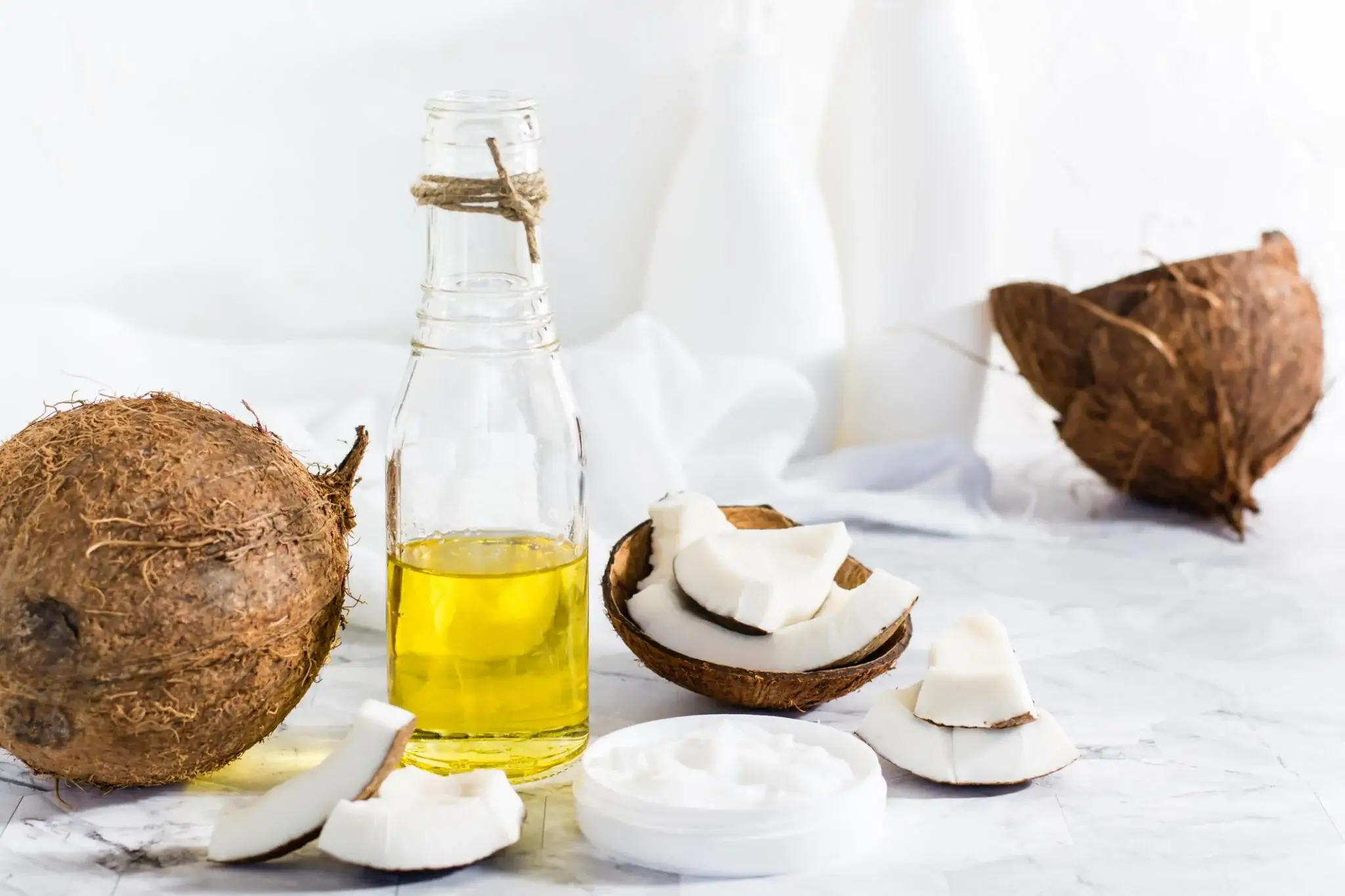Ink on the skin isn’t the only thing tattoos are; tattoos are expressions of art and personal stories. No matter what your first tattoo is or how many tattoos you have, you need complete tattoo aftercare. Because it is important to make sure that your tattoo heals perfectly and sustains its shine and beauty over time. When your tattoo session is over and you enter the healing phase there are a lot of questions that arise.
However, a common question during the tattoo aftercare stage is whether coconut oil is good or not and whether it is effective for tattoo healing. It comes with both complications and some advantages and disadvantages to using coconut oil. Let’s uncover both aspects together.
What is Coconut Oil First You Need To Know?
The kernel or meat of mature coconuts is the source of coconut oil, a versatile natural oil. In a very short time, it gained a lot of fame for its huge range of beauty and health advantages. It comes with antioxidant effects, moisturizing and antibacterial properties. Coconut oil is filled with vitamins and fatty acids and is also used in hair treatments, dietary supplements and skincare products.
Important Steps
- The advantages of coconut oil come with the necessary vitamins that are important for skin health and natural moisturizing properties.
- When used in conjunction with a moisturizer, coconut oil provides nutrients E, K, and C to the skin, nourishing and hydrating the skin.
- Coconut oil can also help you stop the pores and will be the cause of skin irritation.
Should You Put Coconut Oil on a Tattoo Or Is It Safe For Tattoo?
This is a healthy debate between professional artists and tattoo lovers about whether coconut oil is safe for tattoos or not. There are a lot of people who believe in the moisturizing and healing properties of this product, but others are not so sure. They raised concerns about the possibility of stopping coconut pores and irritation. So let’s explore together whether oil is protected for your tattoo or not.
How Coconut Oil Helps In Tattoo Healing
It comes with a lot of good things that can be beneficial in the healing process, because of its moisturizing properties. It is helpful in different factors including hydrating the skin, stopping the prose, minimizing itching, and helping the healing process go more smoothly. The antimicrobial features of coconut oil also provide a barrier that stops unwanted bacteria from spreading.
Advantages of Using Coconut Oil
It is without a doubt healthy to use coconut oil in different applications. The following advantages may be gained by those with tattoos when they use coconut oil:
1. Maintain Healthy Skin By Containing Vitamins
It just doesn’t come with fatty acids but it also contains necessary vitamins that are helpful for skin health. This oil has vitamins E, K, and C. The antioxidant properties of vitamin E help stop skin damage caused by environmental pollutants and improve overall skin health. Vitamin K also helps the natural blood clotting process of the body. Which can be helpful during the tattoo healing process. It also reduces bleeding and helps heal tattoos faster.

Vitamin C in food is also important for the production of collagen, which is necessary for regenerating damaged tissue and maintaining skin flexibility. The combination of these vitamins nourishes your skin. It helps you to reduce inflammation and boosts faster and more effective tattoo healing, ensuring your tattoo heals quicker and more completely.
2. Moisturizing Skin
It is very famous because of its extraordinary moisturizing properties. Because of its top focus on fatty acids, such as capric acid, lauric acid, and caprylic acid. If you use it for skin and coconut oil creates a safety barrier that locks in moisture and prevents dryness. The benefits of moisturized skin are especially apparent during tattoo healing since moisturizing the skin stops flaking, itching, and irritation, which can stop tattoo healing. Also, applying coconut oil regularly to older tattoos can help stop the fading of the ink and keep the skin supple and healthy.
3. Everything Is Natural
There is one basic benefit to applying coconut oil to your skin for tattoo aftercare because of its natural combination. You must ensure that you use pure coconut oil because it is free of chemicals, synthetic fragrances and additives normally found in commercial products of skincare.
Due to its low allergenic potential, it is the best option for sensitive skin types. Coconut oil provides a soft and natural alternative to harsh chemical tattoo aftercare products as a means of moisturizing and saving your tattoos throughout the healing process.
Disadvantages of Using Coconut Oil
As I mentioned, the advantage of account oil is that it helps you to heal your tattoos. But there are some disadvantages that you need to know.
Stop Pores
If you have oily or acne-prone skin, you might develop clogged pores if you use coconut oil on tattoos. Combined with dirt, sweat, and bacteria, coconut oil can create obstacles that trap dirty particles and create skin congestion and breakouts. This is why coconut oil should not be used on a tattoo in the healing process.
Symptoms of Irritation
Normally, most of people’s skin will not get allergies while using coconut oil, but some people may face allergic reactions or skin irritation. If you have sensitive skin or are allergic to coconut or coconut oil then I recommend you not use the coconut oil on your tattoo to protect your skin from skin irritation or skin allergy. Vaseline is also not good for fresh tattoos.
There is no Scientific Evidence
Anecdotally and personally, coconut oil has been proven to be effective for tattoo aftercare. However, we don’t have enough scientific research on its impact compared to other tattoo aftercare products. According to my information, the benefits of coconut oil for tattoo healing may be different for everyone because of their skin type. Not everyone has the same skin.
I recommend you use only a small amount of coconut oil on a patch of skin that is not near your tattoo if you wish to try it for moisturization. If you experience any negative reactions, monitor your skin. Using coconut oil more often may be recommended if you tolerate it well.
Summary: Is Coconut Oil Suitable for Your Tattoo?
Due to its moisturizing and antimicrobial properties, coconut oil is a valuable addition to tattoo aftercare. When including coconut oil in your regimen. It is important to consider individual factors such as skin type, allergies, sensitivity and tattoo placement. You need to find out what works best for you by experimenting with different aftercare methods and consulting a professional if you are unsure. To get more helpful information about tattoos you need to follow the tattooreccover.com website.


4 thoughts on “Should You Put Coconut Oil on a Tattoo? Coconut Oil Use”